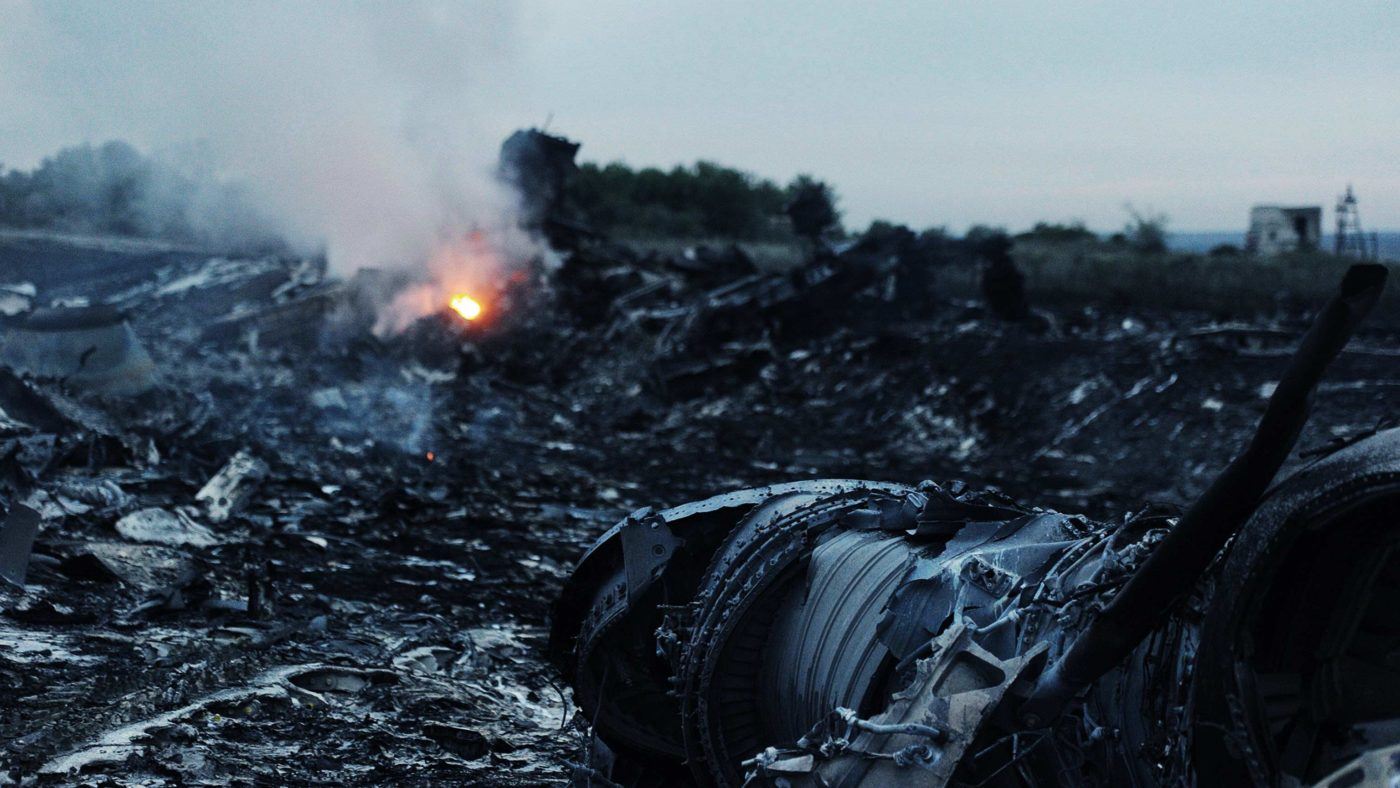Three years ago today, Malaysian Airlines Flight 17 was destroyed over eastern Ukraine while on a scheduled flight from Amsterdam to Kuala Lumpur. All 298 people on board were killed.
Overwhelming evidence suggests that the Boeing 777 was destroyed by a Russian SA-11 Buk antiaircraft missile fired from territory controlled by pro-Russian separatists. But in this age of disinformation, evidence is superfluous. One person’s proof is another person’s propaganda.
One person who understands this better than most is the Russian President, Vladimir Putin.
The most detailed study into MH17’s destruction to date points the finger squarely at Russia.
Issued last year by the Joint Investigations Team (JIT), a Dutch-led body launched in July 2014 to investigate criminal responsibility for the plane’s destruction, the report found that the Buk missile had “without any doubt” been supplied by Russia at the request of the pro-Russian separatists. The plane’s pilot, it found, carried pieces of the missile to the ground in his body, proving beyond doubt that the missile was a type used by Russia and not a similar weapon used by Ukraine.
Russia has gone to great lengths to cast doubts about its responsibility for the attack. The Kremlin’s spokesman, Dmitry Peskov, responded to the JIT report by saying: “We have not seen any proof in the report.” Elsewhere, it has offered multiple alternative narratives – many of them self-contradictory – about what happened to MH17.
Four days after MH17 was destroyed, Russia’s defence ministry claimed that a Ukrainian military Su-25 aircraft had shot down the plane. Almaz-Antei, the Russian state corporation that produces the Buk systems, released its own report that found the plane had been destroyed by a Buk fired from territory held by the Ukrainian Army. The defence ministry later claimed that MH17 had, in fact, not been shot down by a Ukrainian Su-25, or any other aircraft for that matter. Instead, it had been destroyed by a Buk, but not one fired by pro-Russian separatists.
The web of lies Mr. Putin has spun is patently absurd, and nobody in the West takes them seriously. But in Russia, such lies serve to confuse and deceive. According to a recent opinion poll, only 5 per cent of Russians blame Russia and its proxies for the destruction of MH17, while half of Russians believe MH17 was downed by Ukrainian forces and 14 per cent say it was the work of Western special services.
Not content with dismissing and fabricating evidence (according to Western experts, the defence ministry’s initial claim that a Ukrainian Su-25 shot down MH17 was based on satellite images that had been edited using Photoshop) to support his aggressive and revisionist agenda, Putin has also stonewalled the international response.
Immediately after MH17’s destruction, Russia’s proxies in eastern Ukraine refused to allow investigators, primarily from the Organisation for Security and Cooperation in Europe, access the crash site. Russia ignored the Netherlands’ attempts to secure the bodies of the 193 Dutch citizens at the crash site, and refused to speak with Australian diplomats (27 Australians died on MH17). In July 2015, Russia used its United Nations Security Council veto to block the creation of an international tribunal to try the case, arguing setting up such a court could “politicise” the issue.
The Kremlin’s strategy of running down the clock by delaying investigations and hoping that events elsewhere take priority has been successful.
When the Dutch Safety Board released its report in October 2015, which determined that the plane had been shot down by a missile fired from a Buk system, international attention was largely focussed on Syria – where Russia had just carried out its first airstrikes against the opponents of President Bashar al-Assad’s regime.
Amid this gloom, one ray of light has emerged: on July 5, Bert Koenders, the Dutch foreign minister, announced that the countries running the JIT – Australia, Belgium, Malaysia, the Netherlands, and Ukraine – had agreed to prosecute those individuals suspected of shooting down MH17 in The Hague under Dutch law. Wim De Bruin, Press Secretary of the Dutch Prosecutor General’s Office, has said they are likely to file murder and possibly war crimes charges.
But time is against the JIT. Its mandate, including for the criminal investigation which is still ongoing, ends in early 2018. It claims to have collected “extensive” evidence on around 100 people, but only two Russian-speaking men, named, but not verified, as Andrey Ivanovich, also known as “Orion”, and Nikolay Fiodorovich, using the pseudonym “Delfin”, have been identified as possible suspects so far.
Prosecuting the case in court may prove harder than collecting the evidence. The investigators would need Russia and its proxies to cooperate. They would need them to address the evidence that the Buk came from Russia and to explain what happened to the weapon once it returned to Russia. They would also need to question witnesses or suspects in Russia, including military personnel who may have been involved in deploying that missile system to Ukraine.
But there is little chance of any of this. Russia is unlikely to participate in the proceedings or to extradite its citizens for trial – in fact, its constitution forbids this.
There are no easy ways forward. But the West must do all it can to set the record straight about the destruction of MH17.
Long and potentially inconclusive international proceedings play into Russia’s hands – they provide Putin with more opportunities to conceal from the Russian people the truth about their country’s war in Ukraine. But they are better than the alternative – of not holding Russia and its proxies to account for their actions.


